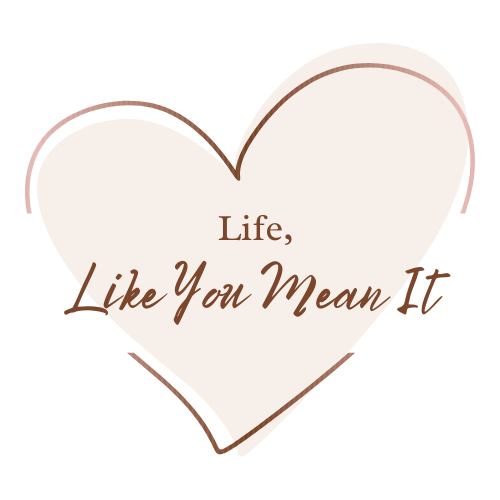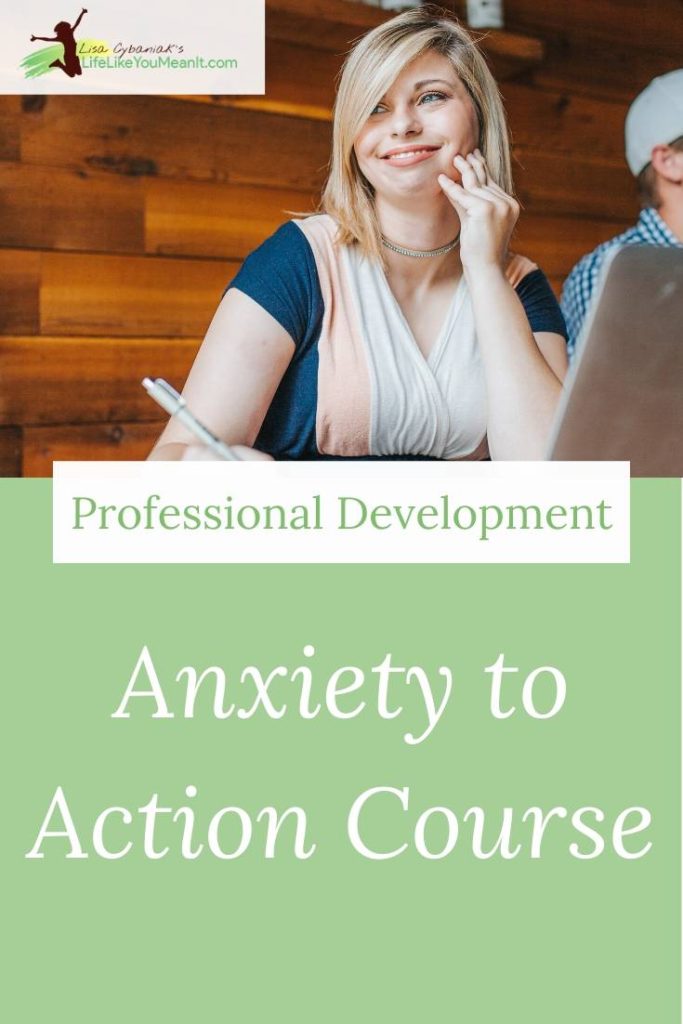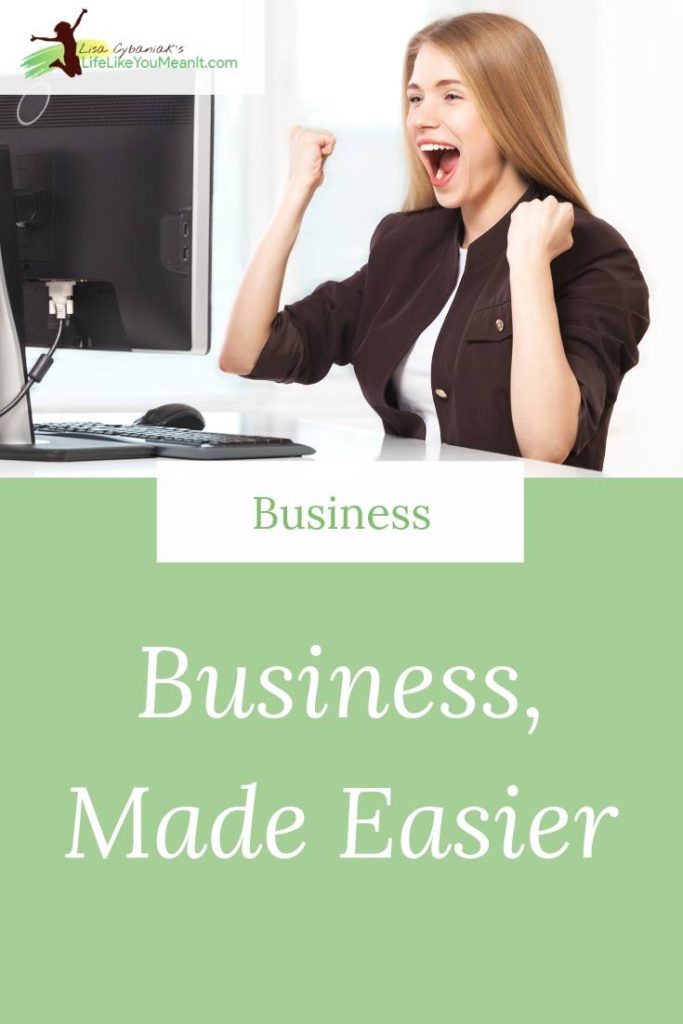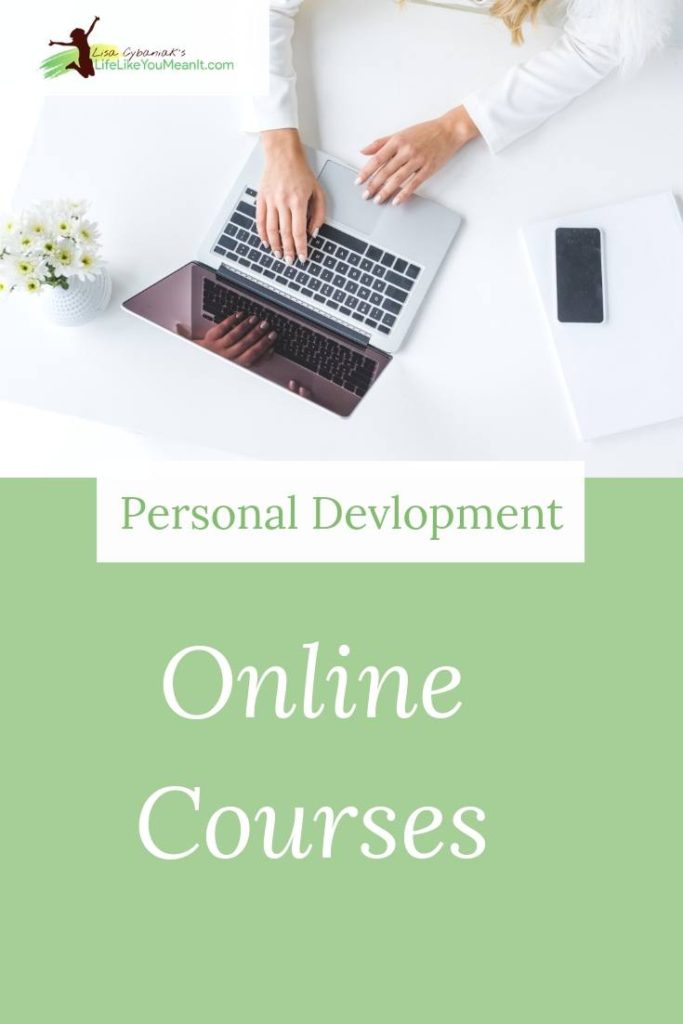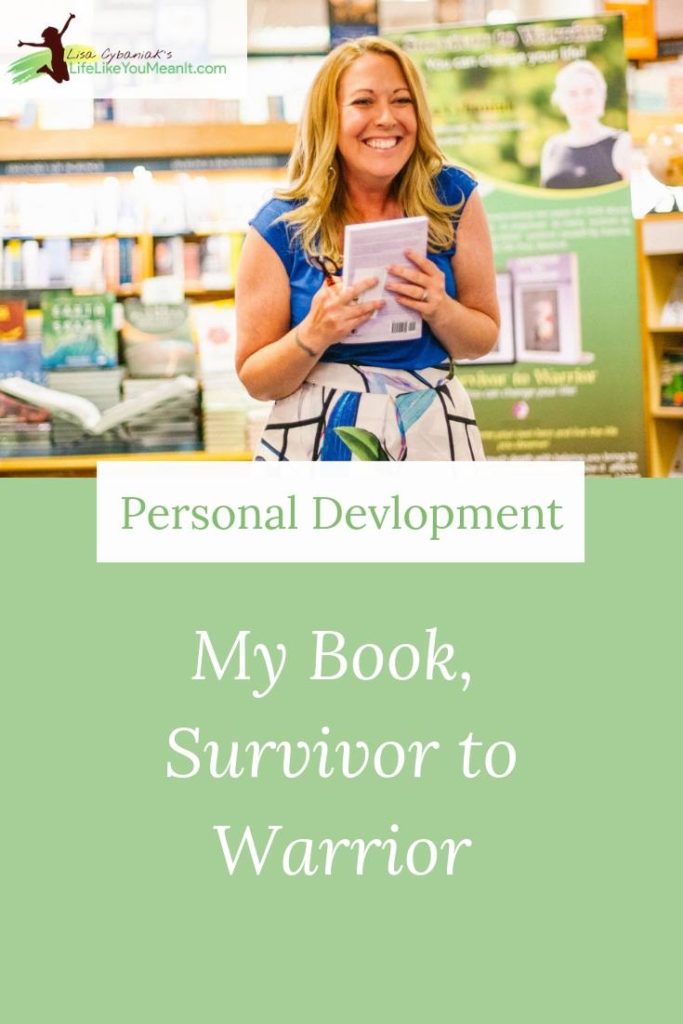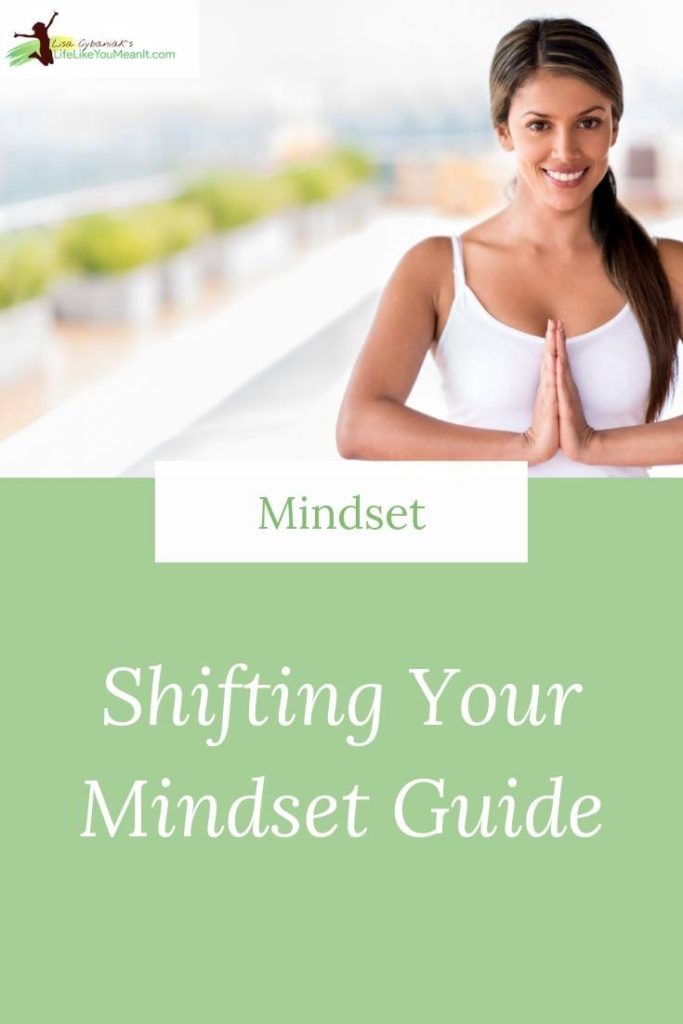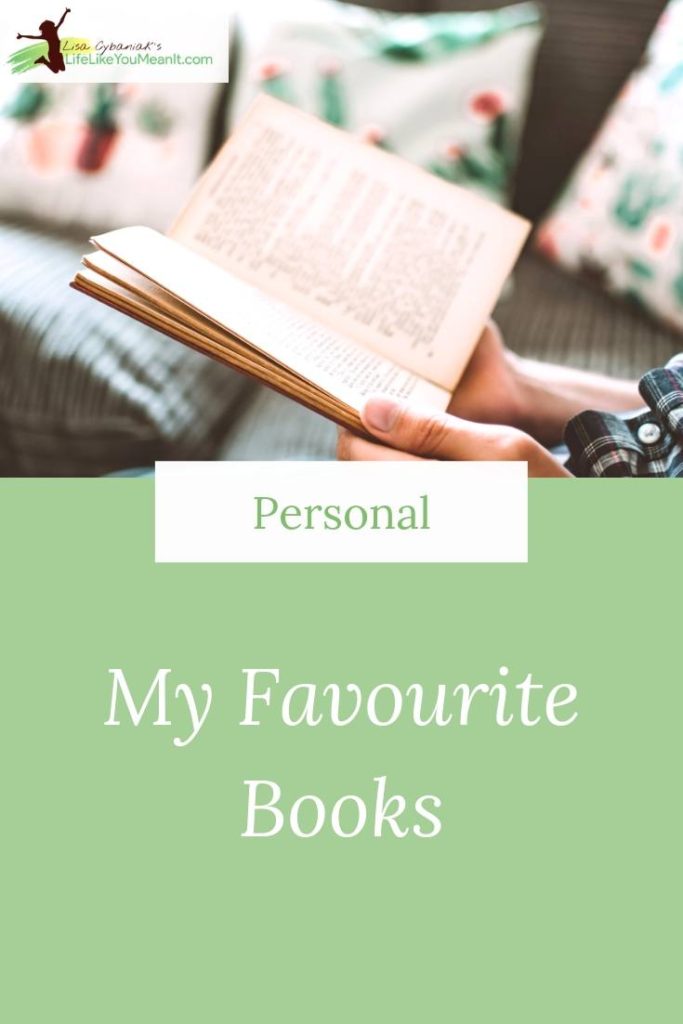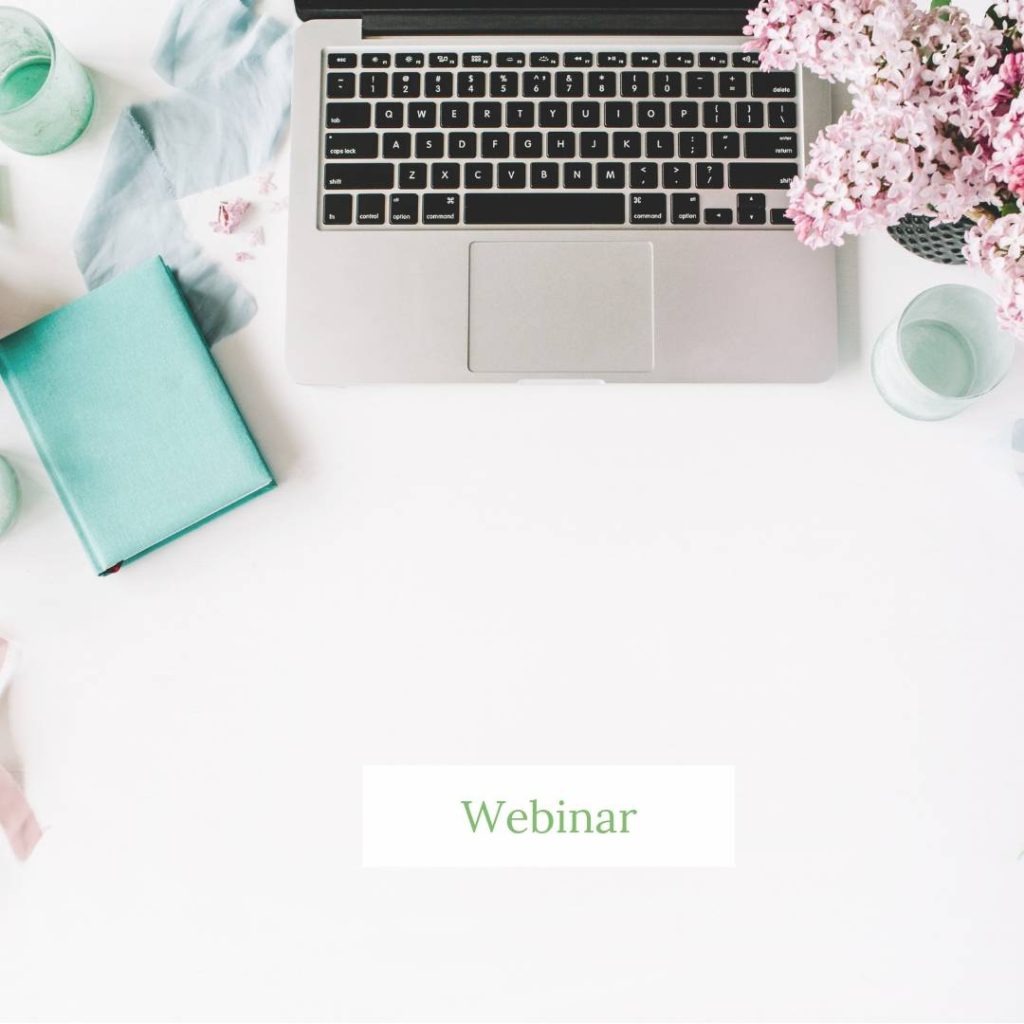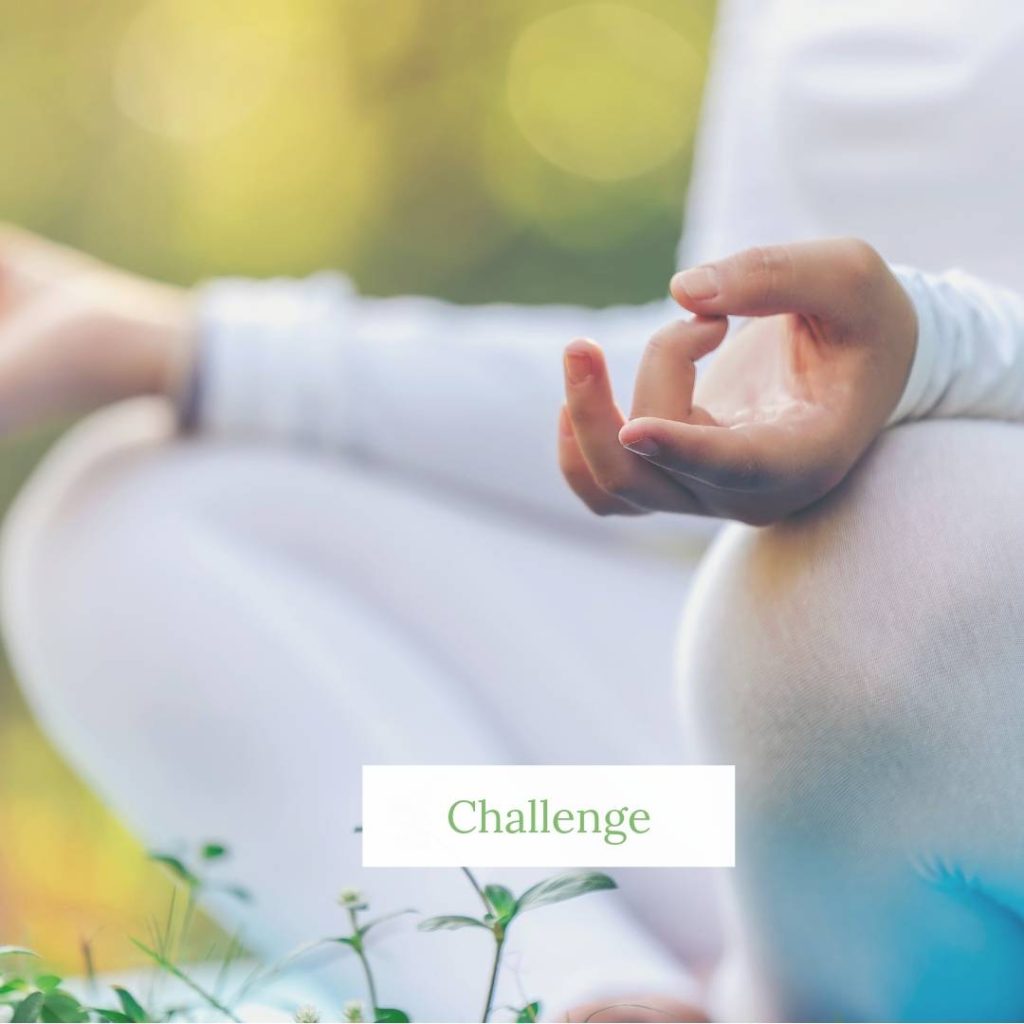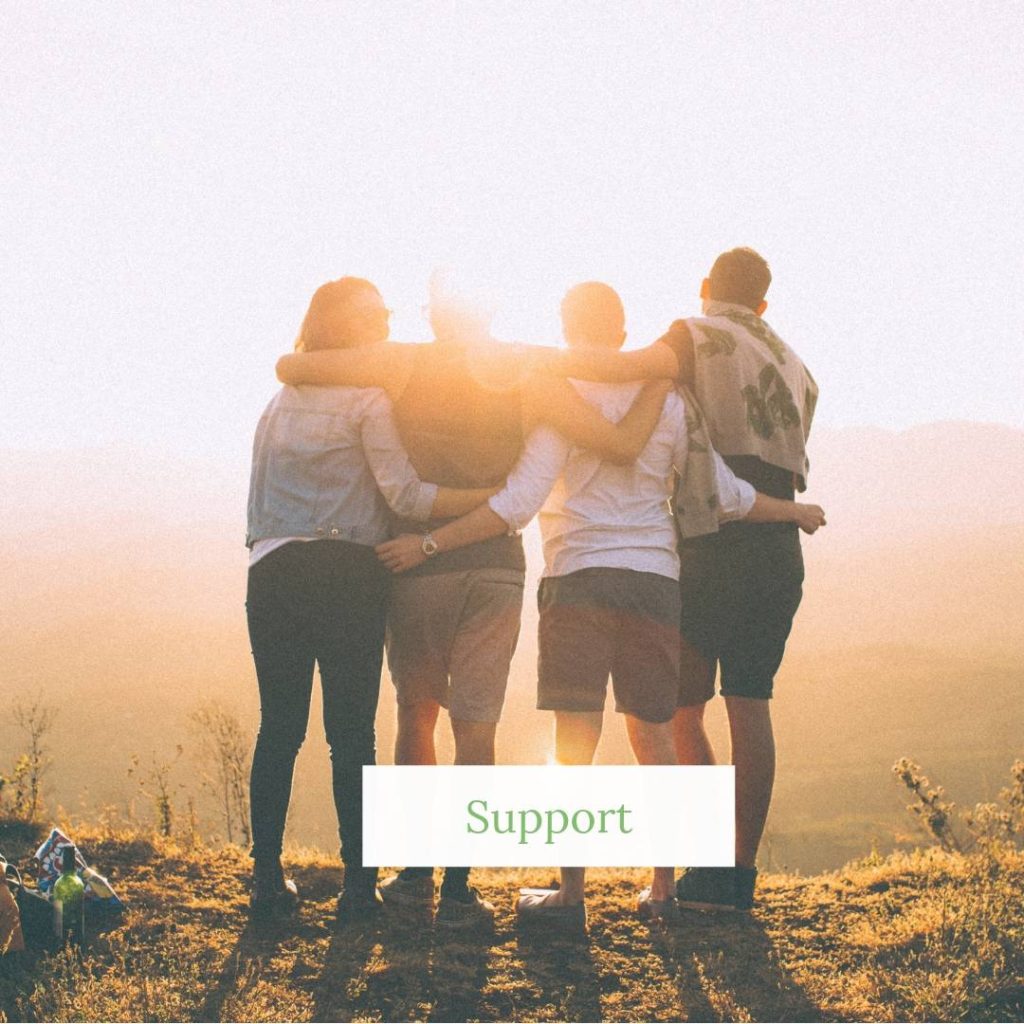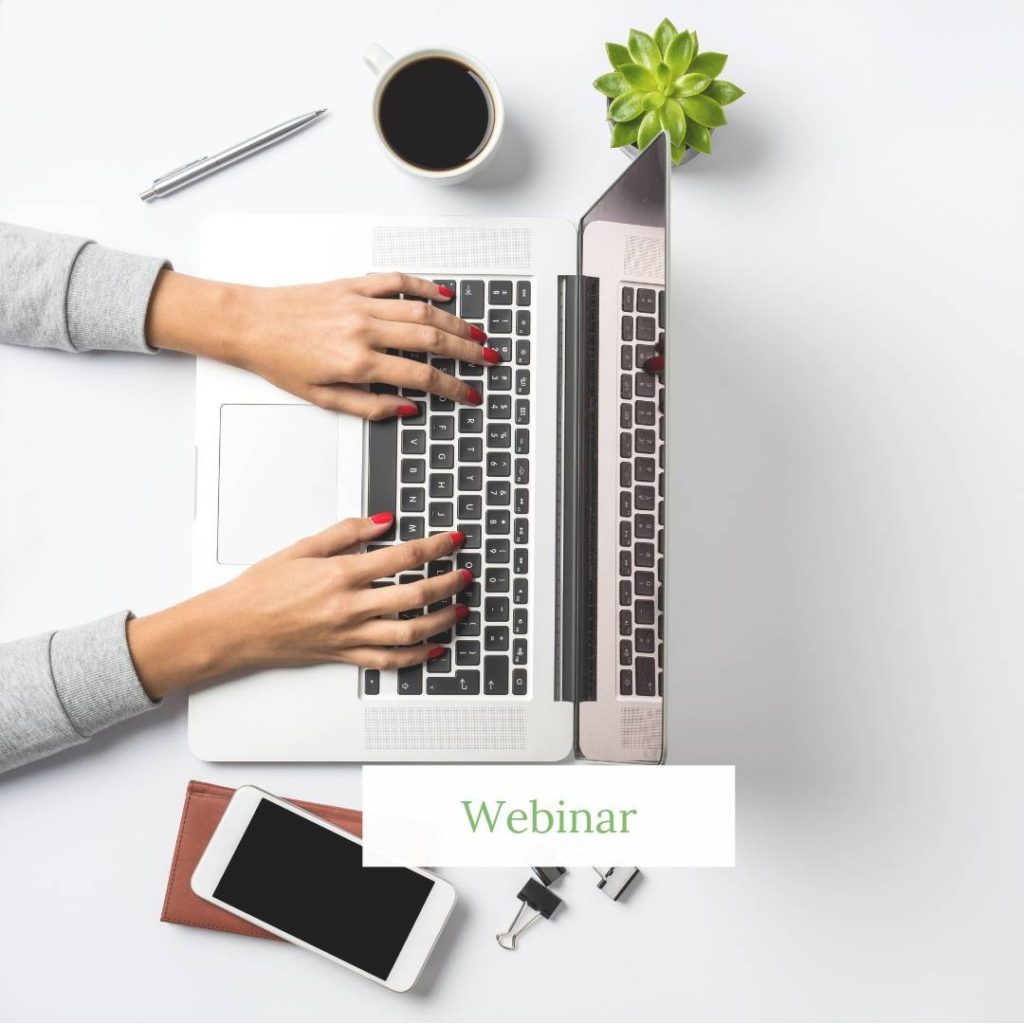by Lisa Cybaniak
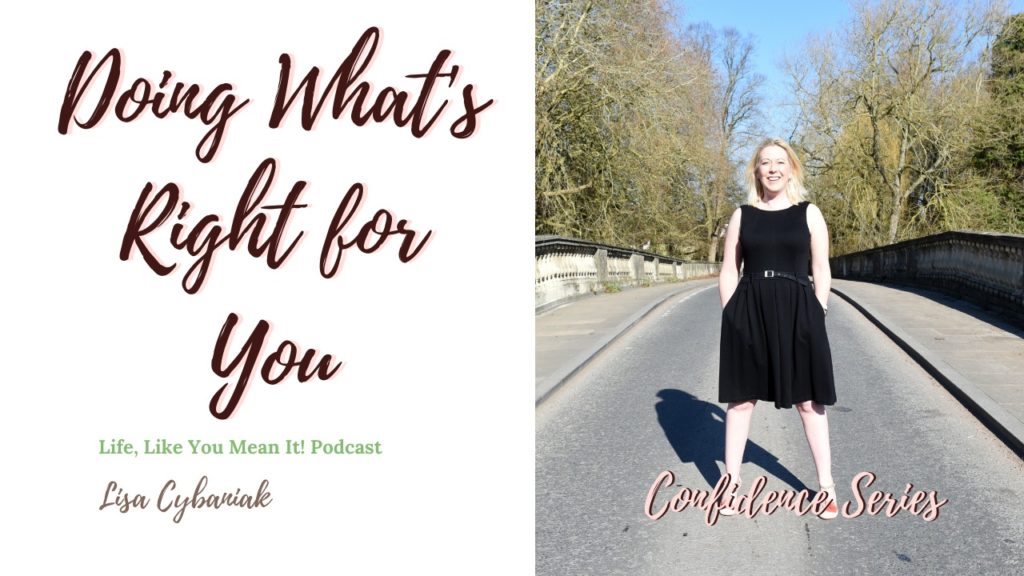
You can also listen on…
We often look to others for acceptance and love. While it’s lovely and everyone deserves to be accepted and loved by others, there is no greater feeling than finding strength within. To me, this means you gain an acceptance for who you are and the life you’ve led up to this point. And you have the confidence to know you’ll create the rest of your life on your own terms, doing what’s right for you.
Doing What’s Right for You Involves Surrender
It’s not about control. In fact, it’s more about surrender. Doing what’s right for you takes an understanding of self, and the surrender of what’s out of your control. This includes other people, the past, and even the future.
What you do have control over is yourself in this moment. The thoughts you choose to focus on, and the way those thoughts influence your emotions and energy level, are always in your control. All the times in my life when I’ve felt out of control were the very times I was desperately trying to control things that were beyond my control.
Being stuck in the past, reliving moments, interactions, reactions and conversations is a manifestation of feeling a lack of control. It’s also a sign that you’re not living in the now, and that perhaps you’re not doing what’s right for you.
The same is true for those who are obsessed with the future. These are the times when you’re not embracing what’s happening now. Instead, you’re too busy thinking about what to do next, or hoping this situation over here works out in this very specific way.
Again, it’s about control, or the lack of it. I’ve recently talked more in depth about surrendering control, in another podcast episode. I’d love for you to check it out.
Trying to Control the Uncontrollable
I’m no stranger to trying to be in control of different aspects of my life. After 10-years of child abuse where I had zero control over my situation, regaining control gave me a sense of empowerment I had never experienced before. So I ran with it.
I went on a mission to control absolutely everything in my life, including the people in it. I was consumed by playing out every possible scenario in my mind, constantly mentally transporting myself to the future. And, as you would imagine, when I wasn’t in the future, I was in the past, mulling over all the things I wished had been different.
When I married my first husband, we began trying for a family, as a newly married couple would do. I fixated on what that family would look like. How happy we’d be.
Month after month we were unsuccessful. This caused me to both project myself into the future, thinking about how great it would be if, and get caught up in the past. What if we would’ve done this? If I hadn’t had the childhood I had, then maybe I’d be able to get pregnant. Maybe I’m going to be such a horrible mother that my future child is being spared that pain.
The last thing I felt I had was control, or strength for that matter.
Struggles with Infertility
The tears that were shed were plentiful and never ending. As was the doubt and blame I casted upon myself. I was convinced life would be better if only I could have a child. All the other women in the world were doing this, or so it felt. So, why couldn’t I?
When we discovered that we both had fertility issues, we investigated our options. With our situation, the most invasive procedure would need to be performed. They would need to use a needle to implant a sperm into an egg while in a petri dish. They’d then wait to see if it was successful before implanting it back into my body. And with a cost of $10,000 a try, it only had an 11% chance of success.
At first I was absolutely devastated. I had been working so hard to make this happen. I was charting my cycle to taking progesterone cream and having medical procedures to investigate and correct the issue. Literally, I was doing everything I could. Yet, I was failing.
My then husband refused to consider adoption as he was afraid he wouldn’t love someone else’s child. He couldn’t bare knowing that he may damage a child by making them feel unwanted.
Not Being Able to Do What Society Expected of Me
I think it goes without saying that my confidence in myself and in my ability to be a woman was shattered. It was in that moment, that thought that I couldn’t be a “real” woman, that I found grace.
Slowly I began to think about all I had been through in life. I thought about all that I had survived, and all that I had learned. I believed then, as I do now, that we choose the lessons we want to learn in this life. And that we even plan ahead for those people who will come into our lives at just the right moment to help us with our lessons.
This thought process is what helped me escape the torment of my abusive past, and it’s what I was drawing on now to help me again.
What if I could look at this situation differently and surrender control of it?
Could I allow myself to feel confident and have purpose to my life in the absence of motherhood? Did I even have a choice? Perhaps this was one of my lessons. Clearly I was doing everything in my power to get pregnant. If I was meant to have children, I’d surely have them by now, or at least have more than an 11% chance of having them even with the most invasive procedure available.
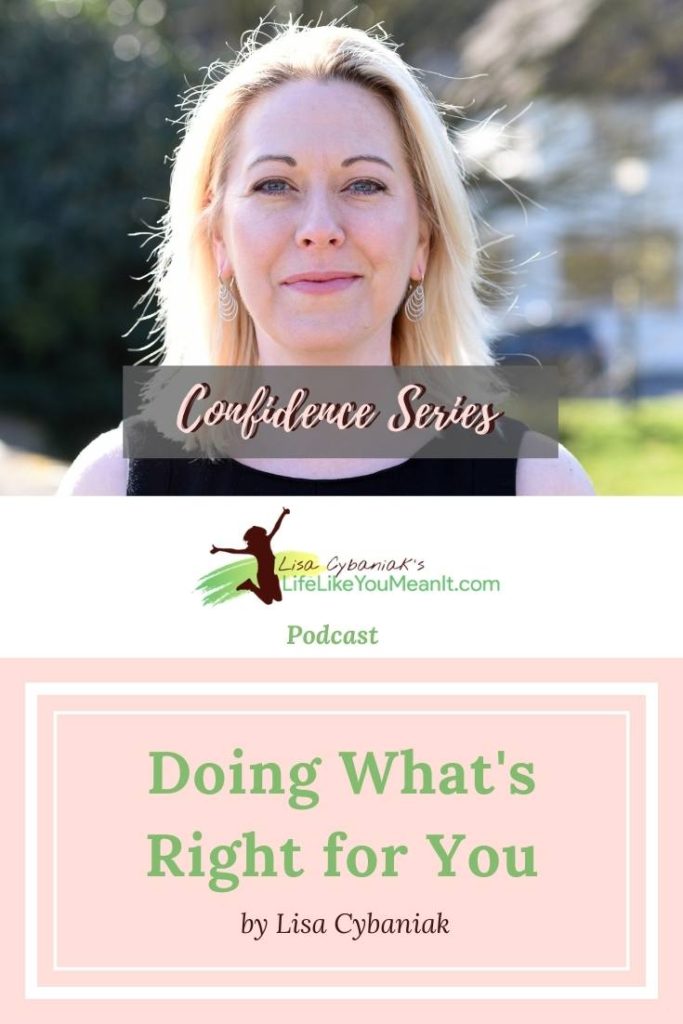
Choosing to Do What’s Right for Me
So, I made a decision, along with my then husband, that we would not have the procedure. We would also stop actively trying to conceive. I would build a purposeful life of meaning without becoming a mother.
Of course this wasn’t an easy decision. One of my concerns was that I would regret this decision when I was too old to have children. But it felt right, making this decision. I was somehow free from the pain and pressure of it all and had a new mission that I could focus on.
And that allowed my confidence to grow. I felt I had made the decision that was right for me after listening to the signs from the Universe. Having children wasn’t my path in this life. As much as I was disappointed and felt like I was somehow unworthy, I was also empowered and inspired to find my purpose.
Doing What’s Right for You Will Be Judged
This inner strength would be tested many, many times along my journey, and still today. It’s tested every time someone asks if I have children. Back then, when in my early thirties, when I said I didn’t have children, people reacted in ways I’m sure they thought were positive and helpful. They were anything but.
These were people whom I didn’t feel a need to tell that I had fertility issues. Quite honestly, it wasn’t their business. Both men and women alike would go on whole rampages telling me how I didn’t know what I was missing and how incomplete my life will be without them.
It’s like they thought they could sway my decision by explaining all the joy that comes from being a parent.
The Pressure of Societal Expectations
I understood that they had no clue how much I had struggled and that this decision was not an easy one but one that I needed to make for my own sanity. But a part of me was angry that this was the response from society – to treat women as if their sole purpose is to procreate and that without doing so surely meant a life of misery.
Sometimes I would be so taken back by their comments that I would blurt out that I was infertile, just to listen to them squirm trying to back track on their previous comments. It wasn’t fair of me to do that, but sometimes when people show such narrow minds, you’re desperate to shine the light into their blind spots.
Still today, people will ask as a natural part of conversation if I have children. Most times, when I tell them about my wonderful stepsons, they patiently listen and then ask, “So, no children of your own then?”
Like I forgot about all those babies I conceived, carried to term, birthed out of my body, and raised for all these years. Do they honestly think that if I had children I would forget to mention them and choose to talk solely about my stepsons?
People’s Reactions to Your Decisions
People don’t think about how what they say is going to impact you. They don’t realise how much of their conversations, questions and judgements are based on societal expectations and norms. Some of those people asking me if I have children of my own had their families because it was what was expected of them.
They didn’t give any thought as to whether it’s what they wanted. Of course, once they had children, they couldn’t imagine a life without them. But I’m standing here breaking their norm.
Me “choosing” to not have children is something they can’t fathom. So when they ask those types of questions, they’re not trying to hurt me, but they are subconsciously trying to remind me that my decision doesn’t meet expectations. The same decision they felt they didn’t have a choice in making.
Now, I’m using this real-life story as an example of how it’s not always easy to do what’s right for you. Sometimes that means stepping outside the expectation’s society or your family or culture have placed on you – away from the expectations you placed onto yourself.
And I’ve recently had guests on the show, Michaela Pontiki and Maria Adrianna Contreras, which each spoke about this very topic. It’s worth checking out those episodes.
Naturally Seeking Approval
We spend so much time and energy as young children looking for approval from others because it’s how we learn right from wrong and how to physically do things. So, naturally when we grow into adults, we continue to seek approval from others.
But spending our time trying to be who others expect us to be, or so wrapped up in these expectations ourselves that we don’t even bother to ask ourselves if this is even right for us, is a recipe for unhappiness.
Doing what’s right for you comes from a confidence in yourself that you deserve to be happy and fulfilled. And that confidence comes from the connection you have to yourself. What is it you want in this situation, or in life?
The Truth about Human Behaviour
Understand that the actions, reactions and words of others are based on positive outcomes for them, not you. The people around you might be behaving similarly to my example, but their lack of empathy or support is not because you don’t deserve it. Instead, it’s because it makes them feel good.
Your decision may have just shattered their whole reality! This may be the first time they’ve realised they even had a choice, and that’s probably not doing great things to their own confidence and understanding of the world.
Those little comments they make are more about them making sense of things and soothing their own egos then it is about you.
You can’t control them or their actions. And really, how they feel about you doing what’s right for you doesn’t matter, does it? This is YOU we’re talking about.
Whatever your situation, you matter. What you want and need all matter. Yes, you might lose some people close to you by doing what’s right for you but think of what you’ll gain.
Press play on the episode above to get all the details!
Follow Me
I’d love for you to follow me on social media! Check out my Facebook, Instagram, Twitter, LinkedIn, and YouTube Channel. Learn more about NLP here!
Want to help this podcast? Follow us, subscribe, and leave a comment on this, or any other episode!
Resources
My book, Survivor to Warrior: You can change your life, walks you through shifting your mindset, challenging your beliefs, recognising your power within, and more! Access it by searching for the title in your country. Here are the links to purchase in Canada, USA, and UK.
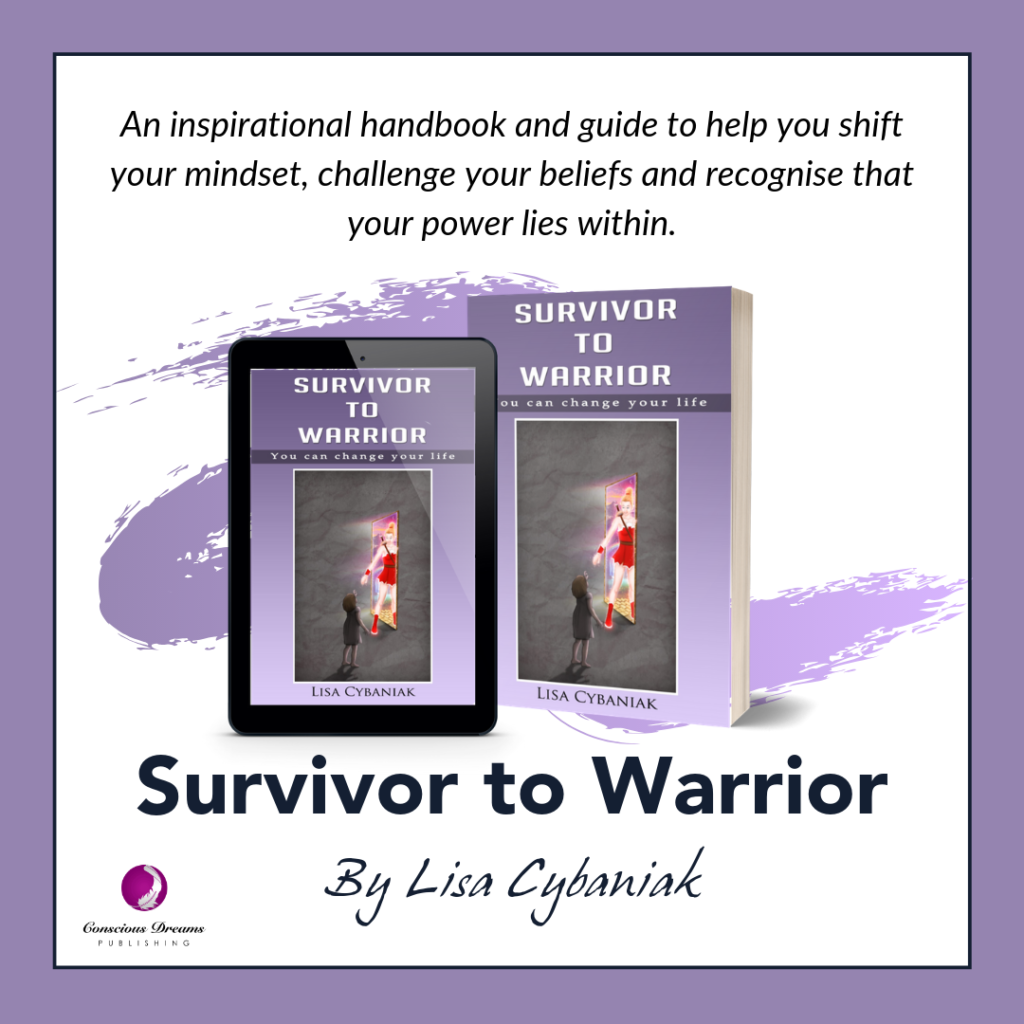
Take me up on my offer for a 30-minute FREE discovery call to see how NLP will empower you!
Voice over credit: Shari Vandermolen. Shari is offering a free download of one of her songs to the fans of the Life Like You Mean It podcast! Just visit www.GiftFromShari.com and tell her where to send it. Shari’s debut album is available for streaming on all the major platforms including Spotify and iTunes.
Top Picks
Freebies for You!
